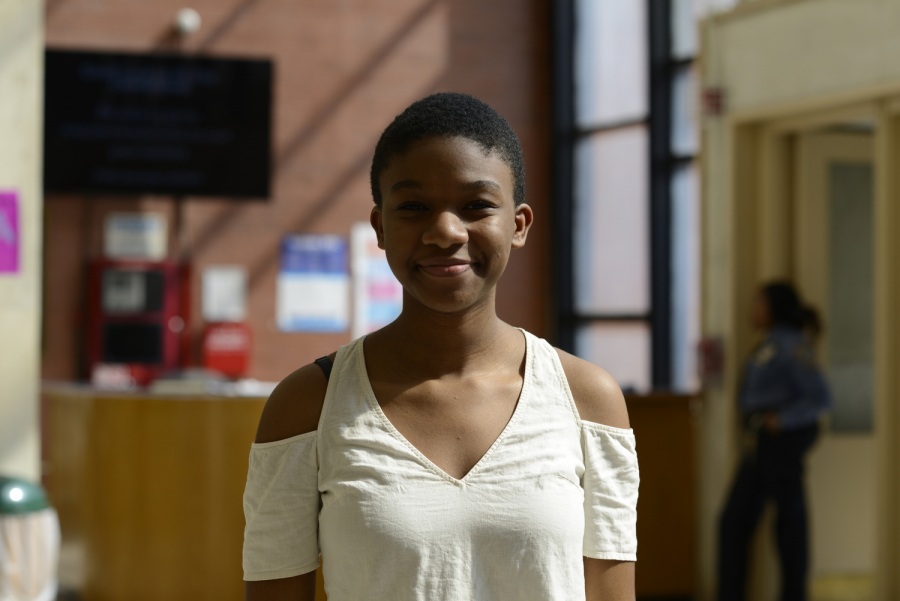Prevalence of Privilege
Melody Moulton ’20, the president of the Black Organization for Student Strength, is always actively speaking on racial issues within the school and within our community.
The complicated concept of privilege and the not-so-subtle advantages it gives people is a reality that many find hard to grasp. Its prevalence is seen in our workplaces, neighborhoods, and school communities, and Bronx Science is no exception. From the ability to prepare for the Specialized High School Admissions exam to the college opportunities available and offered to students, the prevalence of privilege based on socioeconomic, racial, and religious backgrounds is an important issue in today’s society.
Privilege isn’t something that can be earned, and it’s most typically something that can’t be changed within one’s lifetime. It affects the level of ease with which people can do or get certain things. For instance, all prospective Bronx Science students are required to take the Specialized High School Admissions Test (SHSAT) and get a score within the highest percentiles in order to qualify for admission into a specialized high school. Though the legal requirements to take the SHSAT only ask that the student reside in NYC and be in eighth or ninth grade student, it’s still incredibly difficult for students from low-income communities to take the test, whether it’s because they don’t have the means to take months of preparatory classes like wealthier students, that offer exposure to the specialized high school academia and social environment or even tutoring opportunities.
“My privilege is the biggest reason that I go to this school. There are countless bright minds that aren’t given the opportunity I was given to succeed, and this can only be fixed by middle schools taking initiative and giving their students the chance to prepare and take the SHSAT,” said Liiban Aga ’19.
This year, of 895 enrolled freshmen in Stuyvesant High School, the specialized high school requiring the highest SHSAT score, only seven of the admitted students were African-American. Minorities meet obstacles with this exam in almost every step of the way. Melody Moulton ’20, president of the Black Organization for Student Strength, had an experience that perfectly exemplifies the inequity in the system. “I had about three weeks to prepare for the SHSAT. I diligently studied for the exam, taking practice exam after exam. But when I went to register for the exam at my nearest center, I was met with extreme doubt that I could get into a specialized high school. The woman that was dealing with my registration had not referenced any grades. The only basis she had to make that inference was my race. In the end, I was not able to register at that location and had to go to a location an hour away from my home to register,” she recalled.
On the other hand, Candace McQuaig ’20 comments on the way her privilege elevated her ability to get accepted. “I do know for a fact that because my parents are white and were given more opportunities for careers, they made enough money to get me SHSAT prep, without which I wouldn’t have been able to get a score high enough to get into Bronx Science. To add onto that, my parents’ money has given me more access to review materials, bookas, and other educational resources, experiences, and opportunities,” she said.
Many specialized high schools pride themselves on being diverse, Bronx Science being one of them. Within our community, students can see the difference in ability to succeed given both the guaranteed, standard resources the school offers, as well as the resources that their identity or socioeconomic background provides them. Access to the materials that are provided for us at this school gives us a higher platform to discover and develop concepts that aren’t so readily available to other people. “My privilege is the biggest reason that I go to this school. There are countless bright minds that aren’t given the opportunity I was given to succeed, and this can only be fixed by middle schools taking initiative and giving their students the chance to prepare and take the SHSAT,” said Liiban Aga ’19.
Dozens of studies have proven the existence of the deep rooted discrimination in college acceptances, and many students believe that this is an issue that will not improve anytime soon. “This problem is fortified by centuries of establishment. I do not think that this problem can truly be fixed. However, its consequences can be less harmful if each person recognizes their privilege and works to elevate those with less privilege,” said Moulton.
Eshika Talukder is the Spotlight editor for ‘The Science Survey’ and an Athletics Section Reporter for ‘The Observatory.’ She believes that journalistic...

